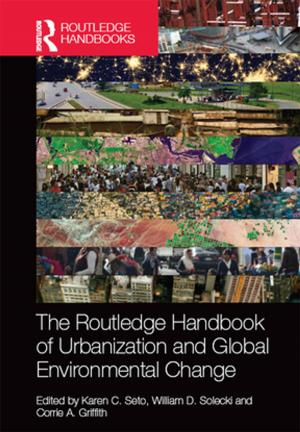International Maritime Transport
Perspectives
Business & Finance, Economics, International Economics, Nonfiction, Social & Cultural Studies, Social Science, Human Geography, Industries & Professions, Industries| Author: | ISBN: | 9781134270583 | |
| Publisher: | Taylor and Francis | Publication: | August 2, 2004 |
| Imprint: | Routledge | Language: | English |
| Author: | |
| ISBN: | 9781134270583 |
| Publisher: | Taylor and Francis |
| Publication: | August 2, 2004 |
| Imprint: | Routledge |
| Language: | English |
The importance of the international maritime transport industry is difficult to overstate. This new book presents an interdisciplinary approach from a wide range of internationally-based experts.
International Maritime Transport represents a radical departure from previous works in its structure and approach. The section editors each discuss the state of the art in the opening chapter, before introducing a selection of works providing a wide-ranging analysis of the subject. Wide discretion of approach has provided literary freedom for individual opinion and analysis within the overall framework: this permits a level of innovation which is perhaps stifled by the more standardized model. Whilst each perspective can be seen as exclusive, together they form a comprehensive volume of issues in contemporary maritime transport.
Topics covered include: ports as interfaces, logistics, manpower and skills, financial risk and opportunities, the regulatory framework. Each chapter contains an introduction which explains the context of the chapter within the book and the contemporary state of the art. Under the editorship of maritime experts James McConville, Alfonso Morvillo and Heather Leggate, the book is sure to be of interest to students and academics working on maritime studies, as well as being useful to professionals and policy makers in the maritime industry.
The importance of the international maritime transport industry is difficult to overstate. This new book presents an interdisciplinary approach from a wide range of internationally-based experts.
International Maritime Transport represents a radical departure from previous works in its structure and approach. The section editors each discuss the state of the art in the opening chapter, before introducing a selection of works providing a wide-ranging analysis of the subject. Wide discretion of approach has provided literary freedom for individual opinion and analysis within the overall framework: this permits a level of innovation which is perhaps stifled by the more standardized model. Whilst each perspective can be seen as exclusive, together they form a comprehensive volume of issues in contemporary maritime transport.
Topics covered include: ports as interfaces, logistics, manpower and skills, financial risk and opportunities, the regulatory framework. Each chapter contains an introduction which explains the context of the chapter within the book and the contemporary state of the art. Under the editorship of maritime experts James McConville, Alfonso Morvillo and Heather Leggate, the book is sure to be of interest to students and academics working on maritime studies, as well as being useful to professionals and policy makers in the maritime industry.















